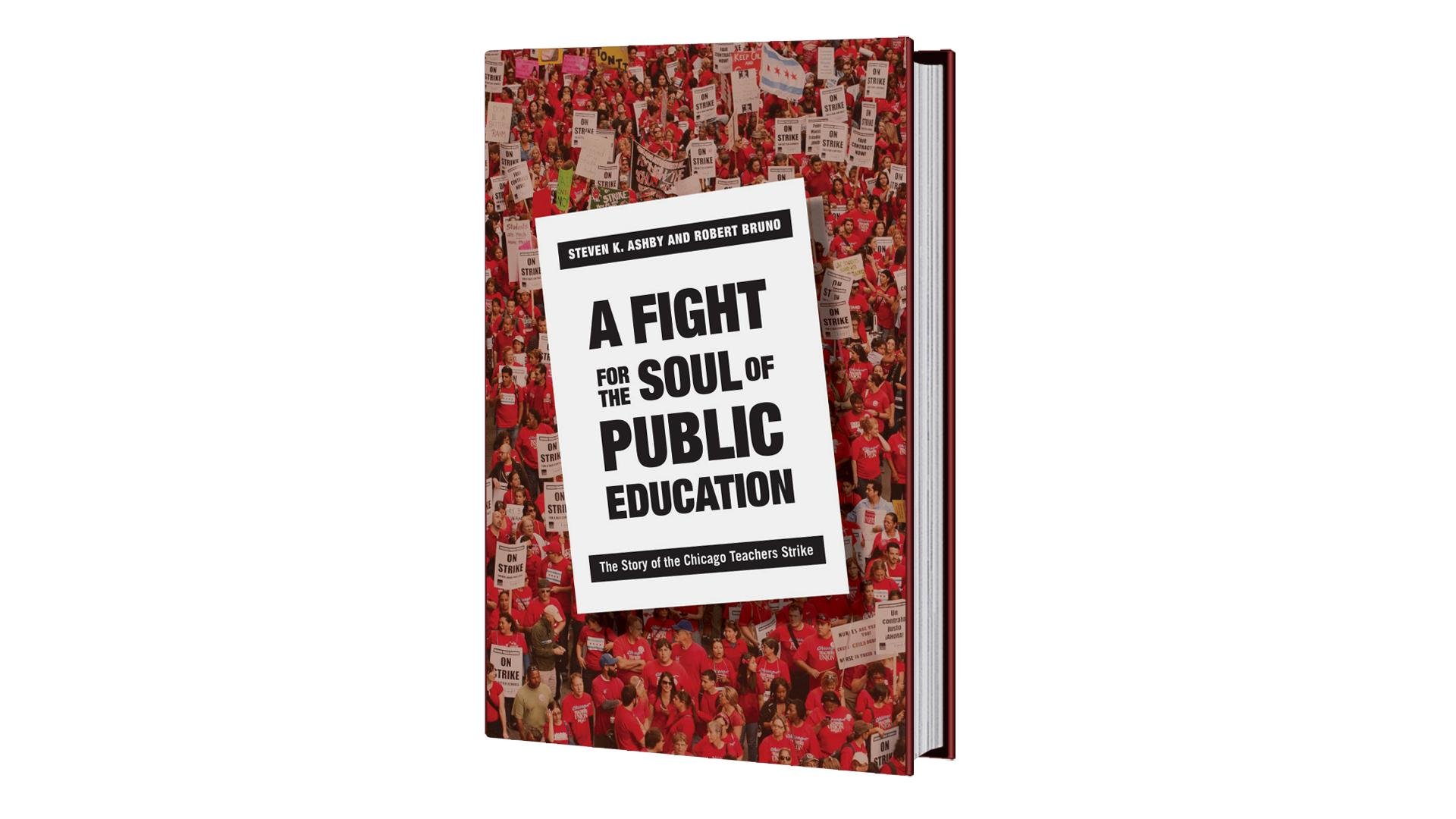How 2012 Chicago Teachers Strike Changed Fight Over Public Education
The Chicago teachers strike of 2012 made international headlines and marked a major shift in the fight over public education reform.
After seven days on the picket lines, 26,000 teachers went back to the classroom with a new contract, but also with new direction.
That’s the case made in the new book “A Fight for the Soul of Public Education: The Story of the Chicago Teachers Strike,” by University of Illinois labor education professors Bob Bruno and Steven Ashby.
Bruno joins us to take a look back at what that strike – the first Chicago saw in 25 years – meant for public education and the labor movement.
Below, an excerpt from “A Fight for the Soul of Public Education.”

Introduction
For seven school days in September 2012, approximately twenty-six thousand members of the Chicago Teachers Union (CTU) walked picket lines in front of 580 schools. The Chicago school strike was the first the city had seen in a quarter century.
This book offers an analysis of what happened during the strike and why it is important for public education and the common good. We aim to tell two interwoven stories.
First, we provide a rare look deep inside the contract bargaining process, based on extensive interviews with both management and union bargainers. For roughly ten months leading up to the strike, union and management teams enveloped themselves in the minutiae of more than one thousand contract proposals. A labyrinth of procedures governed the bargaining activity, and two major state education laws needed to be incorporated into the contract. Bargaining continued throughout the strike, and the parties eventually produced a labor agreement whose proteacher substance few had predicted possible.
Second, we seek to tell, through the teachers’ and staff’s voices, the story of how the CTU was transformed from a top-down, bureaucratic organization into one of the most member-driven unions in the United States. In this process, a labor conflict focused solely on compensation at the start developed into a challenge to a national education reform movement that, teachers charged, was systematically destroying public education and using Chicago as its test case. Unlike in past strikes, tens of thousands of teachers, clinicians, and paraprofessionals marched repeatedly in Chicago’s neighborhoods and downtown. Thousands of community members and parents joined the demonstrations. Crowds swelled, shutting down streets in the city’s Loop district. Instead of accepting the loss of classroom control and corporate style-management of schools, which teachers had been told for decades was “inevitable,” the CTU reinvigorated a national teachers movement by fighting back. The ripple effects of the 2012 strike are being felt in school districts and union halls across the country.
The strike occurred in the context of a decades-long political and economic struggle where probusiness forces maneuvered against teachers unions, often with bipartisan support from Democrats and Republicans, for control of the country’s public education system. Public schools have always been the subject of intense scrutiny, but, beginning in the 1980s, they became the institutions over which the How 2012 Chicago Teachers Strike Changed Fight Over Public Education | Chicago Tonight | WTTW:
